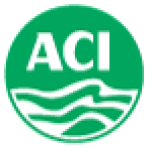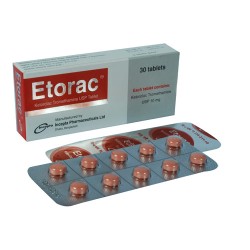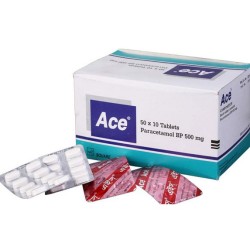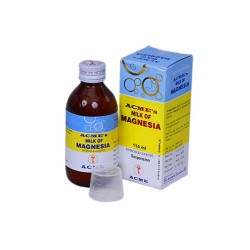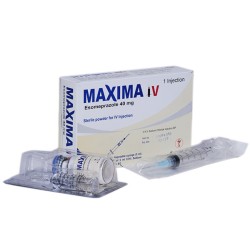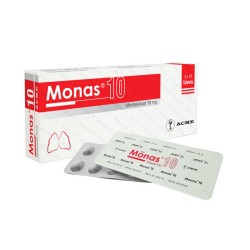Doxy-A 100mg Capsule 10's Strip

New
Hot
Doxy-A 100mg Capsule 10's Strip
৳ 22.00/=
Ex Tax: ৳ 22.00/=
- Stock: In Stock
- Model: Medi-01166
- Generic: Doxycycline Hydrochloride
- Pack Size: Each Box contains Doxy-A 100mg Capsule 10's Strip
1 items sold
7837 views
Available Options
Indications
Doxycycline Hydrochloride is indicated in the following infections caused by susceptible microorganisms :
- Pneumonia and other respiratory tract infections caused by Klebsiella, Pneumococci and Mycoplasma pneumoniae
- Gastrointestinal infections
- Genitourinary tract infections
- Soft tissue infections
- Ophthalmic infections (trachoma) caused by Chlamydia trachomatis
- Acne
- Prophylaxis of Plasmodium falciparum malaria
- Miscellaneous group of infections : Prostatitis, Psittacosis, Trigonitis, Louse borne typhus, Plague etc.
Therapeutic Class
Tetracycline Group of drugs
Description
Doxycycline Hydrochloride is a semisynthetic tetracycline antibiotic with broad spectrum activity. It is primarily a bacteriostatic antibiotic. It has a similar spectrum of activity to other tetracyclines but in particular is more active against Staphylococcus aureus and Nocardia. The drug is often active against penicillin-resistant strains of Staphylococcus aureus and against strains of those organisms that are resistant to other Tetracyclines. Certain Gram-negative strains of E. coli, Proteus mirabilis and Klebsiella, which are often resistant to Tetracycline, may be sensitive to Doxycycline.
In addition, 70-90% of the various anaerobes are sensitive to Doxycycline and Bacteroides fragilis is more likely to be sensitive to Doxycycline than to other tetracyclines. Doxycycline is active against most strains of Haemophilus influenzae and is particularly useful for infections with H. ducreyi, Actinomyces, Brucella and Vibrio cholerae. It is also active against Nocardia, Chlamydia, Mycoplasma and a wide range of Rickettsiae. Doxycycline is active against spirochetes such as Borellia recurrentis, Treponema pallidum and Treponema pertenue. It is also active against Plasmodium falciparum.
In addition, 70-90% of the various anaerobes are sensitive to Doxycycline and Bacteroides fragilis is more likely to be sensitive to Doxycycline than to other tetracyclines. Doxycycline is active against most strains of Haemophilus influenzae and is particularly useful for infections with H. ducreyi, Actinomyces, Brucella and Vibrio cholerae. It is also active against Nocardia, Chlamydia, Mycoplasma and a wide range of Rickettsiae. Doxycycline is active against spirochetes such as Borellia recurrentis, Treponema pallidum and Treponema pertenue. It is also active against Plasmodium falciparum.
Pharmacology
Doxycycline inhibits bacterial protein synthesis by binding to the 30S ribosomal subunit. It has bacteriostatic activity against a broad range of gm+ve and gm-ve bacteria.
Dosage & Administration
Usual dose: 200 mg on first day, then 100 mg daily for 7-10 days.
Severe infections (including refractory urinary tract infections): 200 mg daily for 10 days.
Acne: 100 mg daily.
Uncomplicated genital chlamydia, non-gonococcal urethritis: 100 mg twice daily for 7-21 days (14-21 days in pelvic inflammatory disease).
Severe infections (including refractory urinary tract infections): 200 mg daily for 10 days.
Acne: 100 mg daily.
Uncomplicated genital chlamydia, non-gonococcal urethritis: 100 mg twice daily for 7-21 days (14-21 days in pelvic inflammatory disease).
Interaction
Should not be taken with antacids, milk, other alkalis e.g. calcium, magnesium and iron, penicillin, anticoagulants, anti-diabetic agents, anticonvulsants and enzyme inducing drugs
Contraindications
Doxycycline Hydrochloride is contraindicated in pregnancy and lacatation, children under 12 years of age and in patients with known hypersensitivity to any of the Tetracyclines.
Side Effects
Since Doxycycline Hydrochloride is virtually completely absorbed, side effects of the lower bowel particularly diarrhoea have been infrequent. Gastrointestinal effects e.g., anorexia, nausea, diarrhoea, vomiting, glossitis, dysphagia, enterocolitis and anogenital inflammatory lesions have been reported occasionally. Hypersensitivity reactions e.g., urticaria, angioneurotic oedema, anaphylactic purpura, pericarditis and exacerbation of systemic lupus erythematosus may occur. Haemolytic anaemia, thrombocytopenia, neutropenia and eosinophilia have also been reported. On rare occasions, anaphylaxis may occur.
Pregnancy & Lactation
Pregnancy: Doxycycline should be avoided in pregnant women, because of the risk of both staining and effect on bone growth in the foetus.
Lactation: Doxycyclines enter breast milk, and mothers taking these drugs should not breastfeed their child.
Lactation: Doxycyclines enter breast milk, and mothers taking these drugs should not breastfeed their child.
Precautions & Warnings
During development of teeth (last trimester of pregnency, upto 12 yrs of age) the use of tetracyclines may lead to discoloration of teeth. So tetracyclines should not be administered during these periods
Use in Special Populations
Neonates and children: Doxycycline may cause permanent discoloration of the teeth and so is contraindicated for neonates and children under 12 years.
Elderly: No special precautions are necessary in the elderly.
Elderly: No special precautions are necessary in the elderly.
Storage Conditions
It should be stored in a dry place at room temperature.
Source: https://medex.com.bd
Tags:
ACME
, Tetracycline Group of drugs
, Doxycycline
, Doxy-A
, Pneumonia
, RTI
, GI infections
, Genitourinary tract infections
, SSTI
, Ophthalmic infections
, trachoma
, Acne
, malaria
, Prostatitis
, Psittacosis
, Trigonitis
, Louse borne typhus
, Plague




